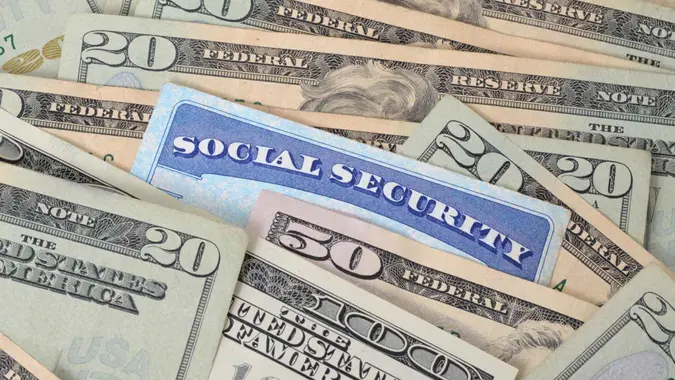How Do Special Payments Received After Retirement Affect My Social Security?

Commitment to Our Readers
GOBankingRates' editorial team is committed to bringing you unbiased reviews and information. We use data-driven methodologies to evaluate financial products and services - our reviews and ratings are not influenced by advertisers. You can read more about our editorial guidelines and our products and services review methodology.

20 Years
Helping You Live Richer

Reviewed
by Experts

Trusted by
Millions of Readers
Special payments after you retire can be confusing and might leave you wondering if the Social Security Administration will reduce your benefit because of them. In most cases, special payments are payments you receive for work you did beforeyou retired. The SSA states that usually, these payments will not affect your Social Security benefit.
What Qualifies?
If you worked for regular wages, income you receive after you retire counts as a special payment as long as the last work you did to earn the payment was completed before you stopped working. The SSA states that special payments can include:
- Bonuses
- Accumulated vacation pay or sick pay
- Severance
- Back pay
- Standby pay
- Commissions from sales
- Retirement payments
Important to note: If you were self-employed, special payments include any net income you receive after the first year you stop working. You must have done the work before you qualified for Social Security benefits.
Although special payments should not affect your monthly Social Security benefit at full retirement age, the rules change if you have not yet reached full retirement. Should you claim your Social Security benefits early, there will be limits to how much you can earn before your earnings affect your monthly benefit check.
If you will be younger than your FRA for the whole year, the SSA reduces your payments by $1 for each $2 you earn above the earnings limit. For 2023, the earnings limit is $21,240.
If you reach FRA this year, the SSA reduces your payments by $1 for every $3 you earn above the earnings limit. For 2023, this limit is $56,520. However, in the month you reach your FRA, you can receive your full benefits regardless of how much you earn.
The SSA website has a Retirement Age Calculator you can use to find your FRA. The FRA varies by the year you were born, so it’s important to consider it when planning for retirement, as yours may be different from your peers’.
The main thing to remember with special payments is that if you now receive income for work you did before you retired and that income simply took a while to get back to you, it will most likely not affect your monthly benefits. An example of this is ongoing commissions from sales. If you were a salesperson and you receive ongoing commissions as a result of sales you made pre-retirement, this counts as a special payment and will not affect your Social Security.
More From GOBankingRates
Cynthia Measom contributed to the reporting of this article.
 Written by
Written by  Edited by
Edited by 
























